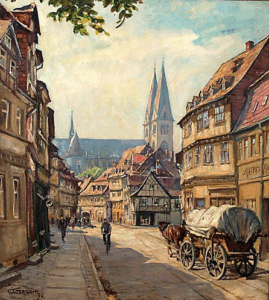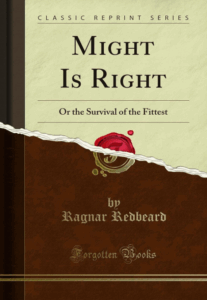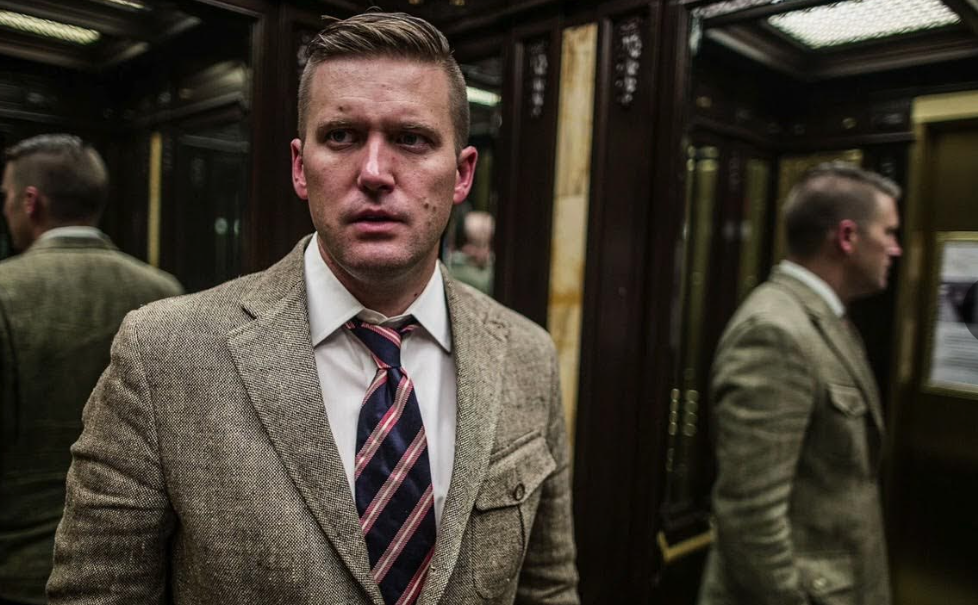
Four days ago, Richard Spencer interviewed Nick Fuentes again. In sharp contrast to my post this morning, after minute 24 Nick says he lives in a racially diverse city and prefers to live there rather than in a small town populated exclusively by white people—because it would be boring, Rick adds!
Around minute 27 Rick mentions WW2 without saying a word about the Hellstorm Holocaust, or that the bad guys won the war. But he is right at the 30-minute mark that in the previous century there was a window for fascism or communism to escape the System, but now everyone is a slave to capitalism and material comfort.
When they talk about Russia around the 50-minute mark, this pair doesn’t seem to distinguish between the American state (which is in fact anti-white) and the white American nation, which is dwindling every day. That doesn’t mean I’m a Russophile in the last, just that they don’t express themselves like 14-word priests.
Half a minute before the hour, Nick seems to like the universalist “compassion”—he used this word—of today’s woke Europeans (note the difference with us, who propose exterminationist hatred). Nick then goes on to say that he likes the European Union, omitting that it is an exterminationist entity, yes: but of the white man!
More than half an hour later, when they talk about Christian Nationalism, they fail to note that the racial factor should be our #1 priority (Christian Nationalism is not National Socialism with its Nuremberg laws, mass deportations, concentration camps, etc.).
When it was time for wrap-up questions, the first person to ask Nick a question noted that the Catholic Church is browning. Nick acknowledged this harsh reality but failed to suggest any cure, even saying that he liked both the current Pope and Pope Francis.
Rick then spoke about Greco-Roman religion, but he doesn’t seem to have read William Pierce’s history of the white race, Who We Are. Both admire the Roman Empire but are completely ignorant of how the empire’s miscegenation caused Rome to decline and fall (see e.g., this paper of a Swedish scholar).
At 1:50, it is clear that Nick follows Christian ethics. He is asked about the outcome of the Aryan dilemma in the future and responds that ethnic cleansing will not be practical in the US (i.e., expelling them to “Aztlán” as in Harold Covington’s futuristic novels) and Rick nods because, although he isn’t a Christian, he shares the Christian ethics of the Catholic Nick.
Compare all this with the Third Reich, which was determined to solve the problem of miscegenation (i.e., the destruction of the Aryan race) at any cost. I confess that after watching this friendly chat between Rick and Nick, it seems obvious to me that America, as an idea, must die in order to save the Aryan DNA north of the Rio Grande.
At 1:57, Nick voices the official Americanist POV on the war in Ukraine—nothing like what someone like John Mearsheimer would say on the subject! It’s incredible, and it’s the same POV as Rick’s. I say incredible because we need to humiliate NATO, the European Union and the US: the greatest enemies of the white race (remember that, during the US bombing of Serbia in 1999, the American who headed NATO declared that Europe no longer had any right to ethnostates).
I am by no means a Russophile, but Russia is certainly not the greatest enemy of the white man, rather this Western Leviathan. Given that Ukraine will certainly lose the war next year, it will be magnificent to see how this pair of blind Americans, who believe the official version of this war, react when the humiliating defeat for NATO, the European Union, the US and Ukraine finally comes.
From this angle, the American Michael O’Meara was much wiser than this pair. O’Meara published an article in Counter-Currents on 7 October 2013 entitled “Too Much Putin?”, in which he said:
US hegemony may be approaching its end. Once the world refuses to acknowledge the imperial authority of its humanitarian missiles [e.g., what Bill Clinton’s military forces did in Serbia because the Serbs were expelling the Muslims from Kosovo—Ed.], and thus stops paying tribute to its predatory model of the universe, then American power inevitably starts to decline—and not simply on the world stage, but also domestically, among the empire’s subjects, who in the course of the long descent will be forced to discover new ways to assert themselves.
But at 2:10 Nick said something humorous: that he can’t run for president because he’s too short “and not white enough.” At least I find that honest (I could say something analogous about me).
At any event, I believe that the future fall of the dollar will create the necessary gravitas for other American racialists not to get stuck halfway across the Rubicon, as this pair are. In the end of the video, both speculate about what we need without mentioning National Socialism (NS is the other side of the Rubicon, following my metaphor). Instead, Nick ended his speech by saying that what we need is “the Hellenised Jew, who is Christ, I suppose.”
The Hellenised Jew, right?
America delenda est!







